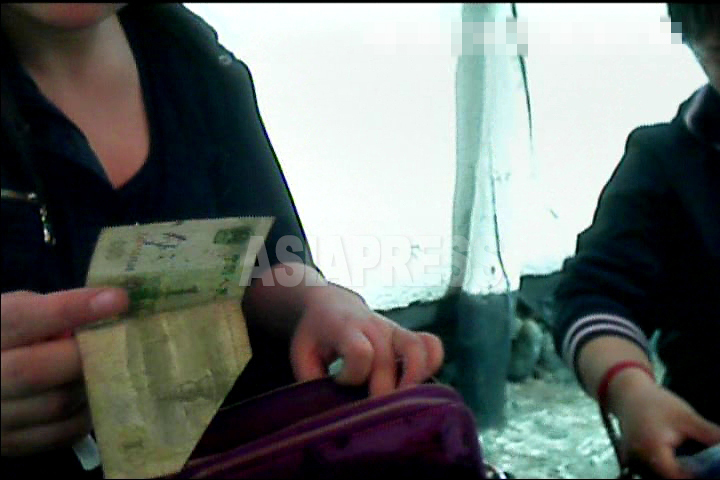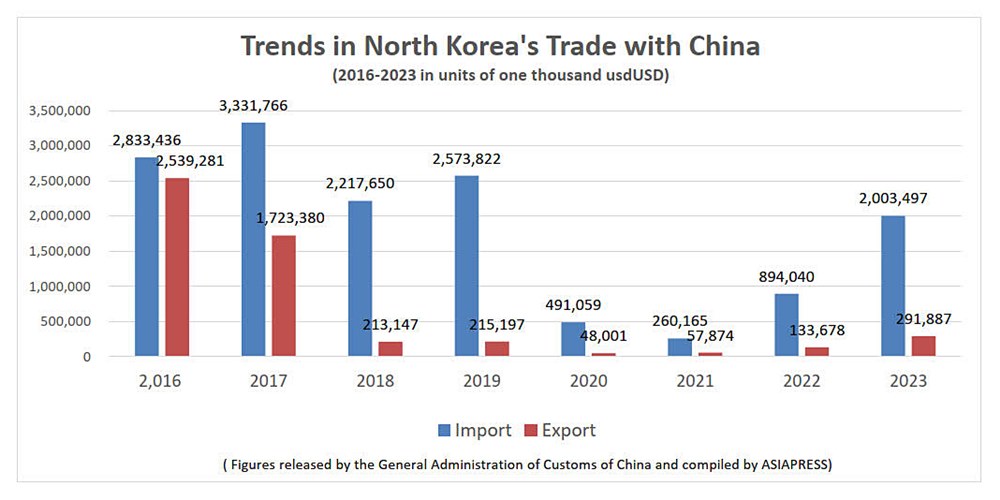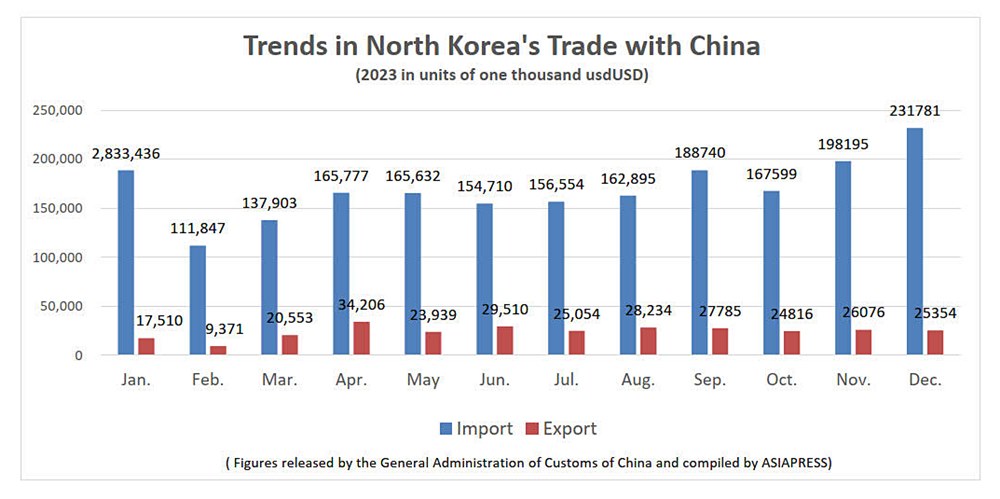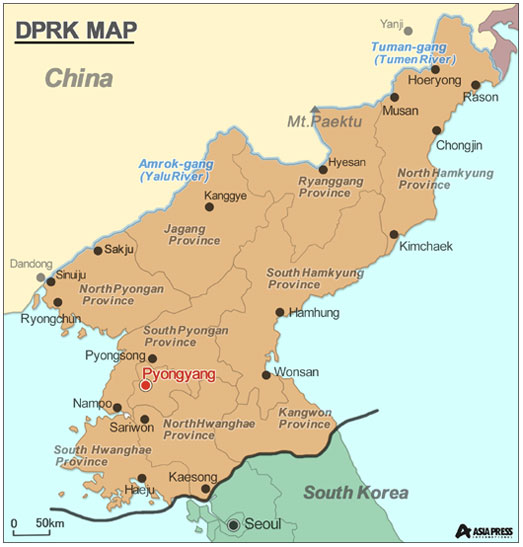
The exchange rate of the Chinese yuan is surging in North Korea. On February 7 and 8, an ASIAPRESS survey of unofficial foreign currency markets in North Hamgyong and Yanggang provinces found that the rate rose to 1,400 won, up more than 10 percent from the previous week. It has been nearly five years since March 2018 since the rate reached 1,400 won, based on surveys conducted by ASIAPRESS.
"I think it's because of the severe shortage of foreign currency in the country," said a Yanggang province-based reporting partner, who added that there was a possibility of a temporary rise just before the Chinese New Year.
◆ Lack of funds has slowed down imports from China
Kim Jong-un's regime scrapped its zero-corona policy and eased border closures last year. Trade with China has recovered to near pre-pandemic levels in 2019 (see Graph 1). Meanwhile, the trade deficit with China widened to $1.7161 billion last year.

"There is a serious shortage of foreign currency for trading companies. We need to sell seafood and minerals to China to be profitable, but it's not easy because of the restrictions. The only things being exported lately are products produced through contract manufacturing. Even then, we need money first because we have to import the materials from China,” a reporting partner in Yanggang Province said. Wigs, eyelashes, and woodwork are some of the latest items to be exported from North Korea.
A businessman who has long been brokering North Korean trade in China's Jilin province told ASIAPRESS:
"Trade has resumed on the Tumen River side and in Hyesan since last summer, but it has been slowing down lately. North Korean trading companies have no money, so even if they want to sell Chinese goods, they can't. The Chinese trading companies are also completely demoralized."

◆ Trading companies visit families of defectors to ask for loans
According to the reporting partner in Yanggang Province, officials from trading companies in the province that are struggling for funds are visiting the homes of defectors' family members and those who have relatives in South Korea, Japan, and the United States to solicit loans and co-investments in trade. The officials know they are secretly receiving remittances from abroad.
Because the Ministry of State Security (the secret police) is cracking down on anyone with connections to South Korea, trading companies are making it harder for the authorities to investigate defector’s relatives by offering them jobs if they provide financing.
Presently, North Korea's trade is heavily controlled by the state, which has authority over what is imported and exported, and the domestic distribution of imported goods is largely handled by state-owned organizations. Since the zero-corona policy was lifted, trade has been limited to the west coast cities of Sinuiju and Nampo, while trade with China in provincial cities has slowed down. (KANG Ji-won)
※ ASIAPRESS communicates with reporting partners through Chinese cell phones smuggled into North Korea.

- <Inside N. Korea> Lack of foreign exchange leads to drop in RMB…Provincial trading companies can’t trade with China due to lack of foreign cash
- <Inside N. Korea> Authorities threaten defectors with firing squads and imprisonment at neighborhood watch unit meetings…Massive search launched to find suspected defector
- <Inside N. Korea> “Prepare for war…” Government intensifies civil defense training amid efforts to stoke crisis…tells those not attending drills that their rations, wages will be cut
- <Inside N. Korea> Equality and corruption stemming from government push for elite education… “classes for gifted students” prioritized over ensuring equal educational opportunities for all
- <Inside N. Korea> Students and parents unhappy with shoddily-made school uniforms…Authorities crackdown on homemade uniforms to force everyone to wear the same thing

























